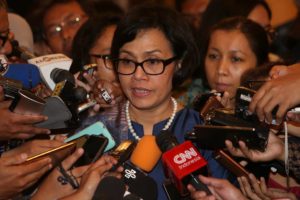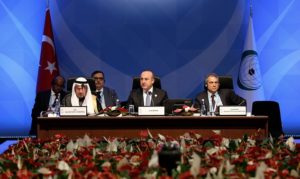
terror
funding but looking for Islamic investors – Africa turns to sharia bonds (Photo: cnbcpakistan)" width="300" height="198" /> Cracking down on terror funding but looking for Islamic investors – Africa turns to sharia bonds (Photo: cnbcpakistan)Harare, Zimbabwe, 15 Rabi’ul Awwal 1435/6 January 2015 (MINA) – Cracking down on terror funding but looking for Islamic investors – Africa turns to sharia bonds.
The charities, mainly based in northern Kenya and the Coast where the bulk of attacks have happened, were not named but had their assets seized and accounts frozen. The country’s NGO board said the decision followed domestic and international investigations on the charities.
Despite Kenya sending in its troops into Somalia three years ago to flush out the al –Shabaab militants, its weakest link is back home – Kenya itself has always been attractive as an operating base for terror groups in Somalia, particularly for fundraising and chanelling money from abroad, theindependent.co.zw quoted by Mi’raj Islamic News Agency (MINA) as reporting, Monday.
A 2011 report by the UN’s Monitoring Group on Somalia documented how terror funds from all over the world would be wired to Nairobi, which acted as a financial hub for such transactions, and on to Somalia.
Also Read: Saudi Arabia Wins Bid to Host World Expo 2030
Last year, a similar crackdown in the UK had 250 money transfer companies put on notice by Barclays, the only major British bank handling money from these companies.
In May 2013 Barclays said it would close the bank accounts the money transfer of the companies as part of a drive to meet stricter money laundering rules. But aid agencies criticised the move saying it would cripple operations in Somalia, relies on such companies to send remittances from abroad in the absence of a formal banking system.
Sukuk is the thing
Money transfer companies in the UK move at least a third of global remittances to Somalia, estimated at $1-1.5 billion a year.
The biggest company targeted, Somali remittance company Dahabshiil, obtained an injunction from the High Court in London blocking the decision. In April 2014, the two settled out of court with Dahabshiil agreeing to shift its accounts to another banker after a transition period; it is unclear whom the company is currently banking with.
Also Read: 148 Products from Indonesia Promoted at Sarawat Superstore Jeddah
However, even as cracking down on the financiers of terror unfolds, there is a very different story unfolding in Africa, and the world, with regards to Islamic finance.
Over the past few years, Islamic finance products have quietly been gaining in popularity across Africa, shifting from being seen as a niche product for Muslim communities to increasingly regarded a mainstream source of financing for governments.
The unique structure of Islamic bonds – known as sukuk – is particularly suited for financing big infrastructure projects.
Sukuks are asset-backed securities, not debt instruments, and they work by the investor owning a share of the asset as well as in sharing in the risk.
For example, if you are building a dam, the sukuk issuer gives you money to build but also owns a part of the dam, and you pay him back in the future by buying out his share (at its future value). In the meantime, he is entitled to a share of the profits.
Also Read: Packaging Industry Supports Halal Ecosystem
This arrangement skirts the charging of interest, which is prohibited by Islam, but manages to make a business case for the lender.
However, with sukuk, the initial investment isn’t guaranteed; the sukuk holder may or may not get back the entire principal (face value) amount. That’s because, unlike conventional bond holders, sukuk holders share the risk of the underlying asset.
If the project or business on which sukuk are issued doesn’t perform as well as expected, the sukuk investor must bear a share of the loss.
By contrast, conventional debt holders do not have a stake in the ownership of a project, and so are insulated from loss if things go awry – in fact, they seize and auction assets to recover their debt.
Also Read: Indonesia-Japan Agree on Energy Transition Cooperation
This structure has been seen as an ethical alternative for financing in the wake of the global financial crisis, where banks on Wall Street were simply interested in closing deals and taking home their bonuses, without a care for whether the contracts they had arranged were financially sound.
The asset-backed nature of sukuk that make it particularly suited for infrastructure projects because they require cash flows to be generated from assets like toll roads or real estate.
In the next few years, Africa is likely to tap the sukuk market to plug its $31 billion infrastrucuture needs, mainly in the power and transportation sectors.
At the end of 2012/13 the global market for Islamic finance was worth around $1.3 trillion.
Also Read: Dubai Expo 2020 Holds Special Event for Palestine
There are over 700 Islamic finance institutions in the world, and 45 of these have a presence in Africa, and its share is growing.
According to financial analysts Kuwait Finance House, currently, Africa accounts for 3.4% of global Islamic banking assets, 0.6% of sukuk outstanding and 2.8% of Islamic fund management assets.
Given the slowdown of advanced economies, Africa’s funding needs may be supported by attracting investors from the Middle East and Asia.
South Africa joins the queue
Sudan is the only country in Africa to restructure its economy and financial system so that it is sharia compliant, but even in non-Muslim majority countries, Islamic financing instruments are increasingly attractive to governments.
In September, South Africa issued its debut $500 million sukuk bond in the international capital markets to broaden the country’s investor base and diversify funding for infrastructure, according to a statement from the South African Treasury.
Also Read: Indonesia Increases Excise on Tobacco Products by 2022
The lead arrangers for the transaction were BNP Paribas, Kuwait Finance House Investment and Standard Bank Group. South Africa becomes the third non-Muslim country to sell government debt that adheres to Islamic law, after Hong Kong and the UK.
The Gambian government makes regular but small issues – last valued at $12 million; Senegal raised more than $200 million in its first local currency Islamic bond earlier this year.
In 2013 Nigeria’s Osun State raised $62m with a seven-year sukuk issue, and Kenya is said to be mulling raising similar bonds targeted for investors from the Middle East and Asia.
In 2015, the sukuk market is expected to issue more than $100bn – the average over 2011-2013 was $112bn – and to expand into a wider variety of countries and sectors.(T/P009/P3)
Also Read: Indonesia to Become the Center of Sharia Economy in 2024
Mi’raj Islamic News Agency (MINA)



































 Mina Indonesia
Mina Indonesia Mina Arabic
Mina Arabic